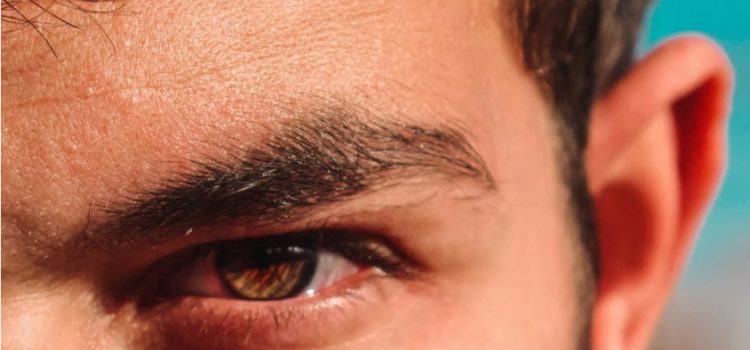

This article is an excerpt from the Shortform book guide to "No More Mr. Nice Guy" by Robert Glover. Shortform has the world's best summaries and analyses of books you should be reading.
Like this article? Sign up for a free trial here .
What are the signs he is not actually a nice guy, even if he thinks and says that he is? How can you spot this deceptive nice guy?
In his book No More Mr. Nice Guy, Robert Glover explains the frustrating—and often manipulative—Nice Guy mindset. According to Glover, a not-so-nice-guy is someone who might claim to be nice, but in reality, they are fueled by fear, insecurity, and external validation. He lists the key signs that he is actually not a nice guy like he says he is.
Below are the ten tell-tale signs he is not a nice guy.
10 Signs He Is Not a Nice Guy
In the face of struggle, dissatisfied men use the tactic they know best: Be nice. However, according to Glover, “being nice” rarely yields the desired outcome, and not-so-nice-guy’s insecurities frequently emerge as passive-aggressive or dishonest behavior. Their repetitive, ineffective approach to life leads to unsatisfying intimate relationships, bitterness, and disappointment. We’ll explore the intricacies of a not-so-nice guy’s behavior, and its consequences, later in this guide.
While the not-so-nice-guy’s traits listed above may be interpreted as passive or even annoying, they’re far from mean. But their suppression of the self—to avoid disapproval, conflict, or strong emotions—leads them to frequent disappointment. Glover stresses that in their frustration with life, these men are often far from nice. In fact, their indirect and avoidant nature results in an angry cycle of self-victimization:
The not-so-nice-guy does something to appear nice → He stews in silent resentment when things don’t automatically go his way → Unable to contain his anger any longer, he eventually lashes out via tantrums, passive-aggressive behavior, or even abuse
Glover notes that because he avoids addressing the root cause of his tantrum—opting to “fix” the reactions of others instead—the cycle continues indefinitely.
| The Victim Mentality This cycle is often referred to as a disorder of its own: the victim mentality. Psychoanalyst Manfred F.R. Kets de Vries presents a similar cycle when discussing victimhood. Just as a not-so-nice-guy believes he must people-please to get what he wants out of life, de Vries’s victim stage is defined by a belief that all control over your life rests in the hands of external forces. And like the not-so-nice-guy’s eventual angry outbursts, his victimizer stage sees the “victim’s” feelings of powerlessness turn into rage that gets taken out on the innocent people around them. However, unlike Glover, de Vries adds a final rescuer stage, in which the “victim” decides to “rescue” others in an attempt to fix everyone’s problems except their own. When someone tries to help the “victim” in return, they invent reasons to resist this assistance so as to unconsciously affirm their victim status and elicit more attention. Similar to Glover’s views on becoming an Ideal Man, de Vries believes the best way to break this cycle is to self-reflect and develop a healthy self-image. |
Here is Robert Glover’s list of the signs he is not a nice guy, even if he tells you he is. According to Glover, a not-so-nice guy:
- Avoids conflict and struggles with boundaries.
- Is a people pleaser, and seeks external validation. He will often tell people what they want to hear.
- Prioritizes other’s needs and desires over his own, rather than holding himself accountable for his own needs and desires.
- Ignores his flaws and mistakes rather than addressing and learning from his flaws and mistakes.
- Fixes people and situations without prompting rather than taking charge and genuinely cares for people
- Witholds his thoughts and emotions out of a fear of disapproval.
- Isolated and lonely, because he doesn’t build healthy and worthwhile relationships
- Uses manipulation and indirect tactics to get what they want. This is because they think they must conceal their needs, desires, and emotions.
- Might display self-destructive, compulsive behaviors. These addictions can be drugs, alcohol, or sex (such as porn and masturbation.)
- Has issues with his parents, including controlling or abusive fathers, overbearing mothers, strict parents, or pressure to be the family anchor.
The above signs he is not a nice guy from Dr. Robert Glover should be taken with a pinch of salt, but they give some indication about whether somebody is as nice as they say they are.

———End of Preview———
Like what you just read? Read the rest of the world's best book summary and analysis of Robert Glover's "No More Mr. Nice Guy" at Shortform .
Here's what you'll find in our full No More Mr. Nice Guy summary :
- Why being a "Nice Guy" isn't actually a good thing
- Why Nice Guys miss out on a life of self-acceptance, empowerment, and satisfaction
- How to know if you are a Nice Guy and how to become an "Ideal Man" instead






